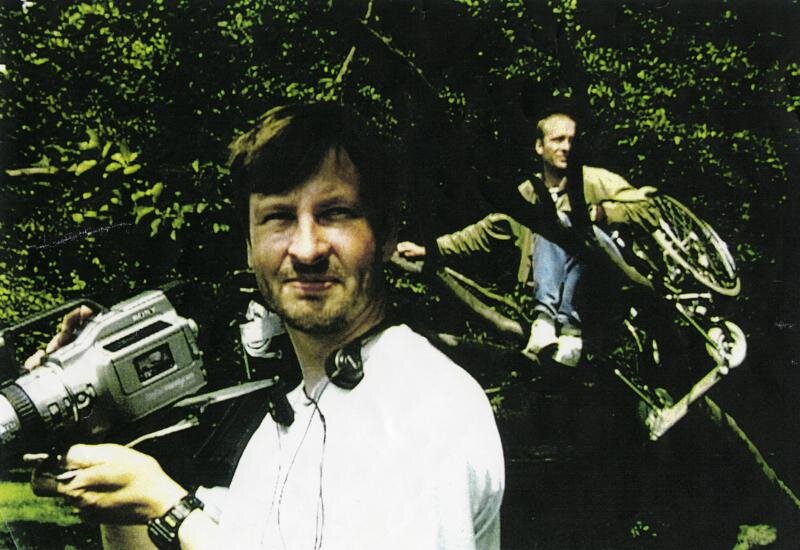The Humiliated
Toronto International Film Festival Program Book
1999
The Humiliated
Jesper Jargil
DENMARK, 1999
79 minutes Colour/35mm
Production Company: Jesper Jargil Film/Danish Film Institute
Producer: Vinca Wiedemann
Screenplay: Jesper Jargil
Cinematographer: Jesper Jargil
Editor: Mette Zeruneith, Daniel Dencik
Sound: Per Streit
Music: Camille Saint-Saéns
Production: Jesper Jargil Film
At last year’s Cannes Film Festival, one film received an unusually harsh critical drubbing. It was Lars von Trier’s The Idiots, his follow-up feature to Breaking the Waves. It seemed that the bad boy of cinema had finally gone too far. The world had accepted his marching troops of skinheads, his ritual burning of insufficient prizes, his contempt for the Oscars and his outspoken fondness for making porno movies. But not this. The Idiots is the story of bourgeois Danish twenty-somethings who, whether for fun or obscure political reasons, live in a commune devoted to “spazzing,” or acting like mentally disabled people in public. Those who weren’t prima facie offended by the material were revulsed by von Trier’s reticence to reveal his motivation for making such a film. It was also a “Dogme 95” project and so carried the (somewhat pretentious) baggage of that cinematic naturism.
The Humiliated is both a portrait of how this masterful monstrosity was made and of von Trier himself. A self-described control freak, von Trier allows the documentary crew extraordinary access to his set and allows them to use his “diary”—paranoid murmurings into a dictaphone at the end of each shooting day—as audio overlay. The interplay between the two reveals a frightening megalomaniac, very much cut from the same cloth as Herzog and Fassbinder. It also shows the extreme measures he’s prepared to take to wring an emotionally “honest” performance out of his actors. (Incidentally, the documentary also suggests that The Idiots is one of the most philosophically acute and challenging film projects in recent memory—a far cry from the mocking international film establishment’s take on it.)
The Humiliated does not follow the story of The Idiots through to the Cannes festival, even though the filmmakers use the Cannes “theme song” (the “Aquarium” movement from Saint-Saéns’s Le Carnaval des animaux) as an ironic music track throughout. But the film’s reception there has made this project all the more important. If possible, The Humiliated should be seen soon after The Idiots itself; it amplifies and explains this canonical work in ways that few other on-set documentaries ever have.
—Noah Cowan

